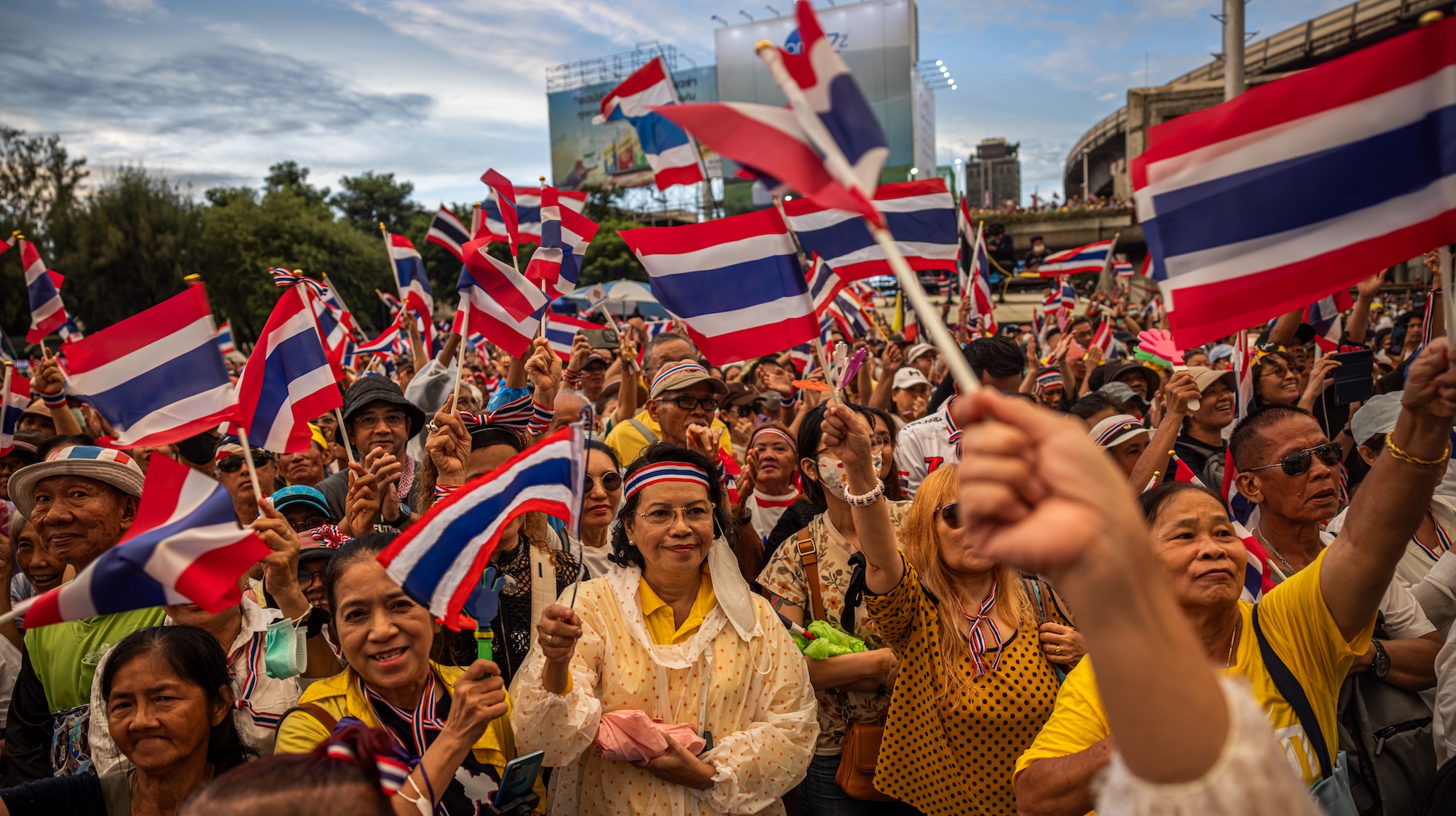Protests Erupt in Bangkok Over Paetongtarn Shinawatra’s Leaked Call
Thousands gathered in Bangkok over the weekend, reigniting protests demanding the resignation of Prime Minister Paetongtarn Shinawatra. The uproar follows the leak of a phone conversation that allegedly reveals her offering an olive branch to Cambodia’s controversial leader, Hun Sen.
The Leaked Call
In a 17-minute phone call that has ignited significant backlash, Paetongtarn characterized Hun Sen as "uncle" and criticized a Thai military commander, which many Thai citizens interpreted as a sign of weakness. The recording, released by Hun Sen, has been labeled as a damaging exposure of the prime minister’s diplomacy tactics, intensifying anger among voters who feel betrayed by her handling of national interests.
Repercussions for Thai-Cambodian Relations
This incident has broader implications for Thailand’s relations with Cambodia, a relationship already marred by historical grievances. Many commentators assert that the controversy could sour ongoing diplomatic engagements, revealing deeper rifts just as both countries grapple with long-standing border disputes.
Historical Context of the Border Dispute
The roots of the Thailand-Cambodia border conflict extend back to the early 20th century. Colonial-era bureaucrats established the border in 1907 to follow natural watershed lines, yet the delineation has often been contested by Thailand. Injustice felt by both parties dates back to World War II, where Japan’s occupation momentarily altered control over the region but left many issues unresolved post-war.
Efforts to negotiate peace have included the establishment of a Joint Boundary Commission in 2000, though it has largely failed to achieve any meaningful resolution. Notably, 2011 saw the last significant military confrontations over the border, but recent events have rekindled the tensions.
Recent Escalations
Tensions between Thailand and Cambodia predictably surged in May when a skirmish resulted in the death of a Cambodian soldier. Each side issued accusations, with Thailand claiming it acted in self-defense against unprovoked fire. Before this, simmering animosities had already surfaced, exemplified by viral footage of Cambodian soldiers singing their national anthem in disputed territories earlier this year.
Economic Impacts of Rising Hostilities
The diplomatic back-and-forth has led to retaliatory measures affecting trade between the two nations. Thailand has at times closed land crossings, disrupting commerce and hindering the flow of tourists into Cambodia’s gambling hubs. In retaliation, Cambodia has restricted several Thai imports and even electricity supplies, leading to a potential economic fallout estimated at 60 billion baht (£22.5 million) if the situation continues until year-end.
Political Fallout for Paetongtarn
Paetongtarn’s political future hangs in the balance. As a member of the influential Shinawatra family, her ascent to power has been seen as a continuation of a dynastic legacy, yet her recent missteps have created turbulence within her administration. The Bhumjaithai Party, part of her governing coalition, has signaled intentions to withdraw support, drastically undermining her foothold in power.
Furthermore, she faces a vote of no confidence in parliament, set for July 3, while Thailand’s constitutional court deliberates a lawsuit alleging her conversation’s implications amount to treason, a charge that could have profound ramifications for her political standing and the broader political landscape in Thailand.
A Nation on Edge
Thailand currently stands at a crossroads, with rising public discontent and political instability intersecting with historical grievances and scrutiny of leadership. The trajectory of events in the coming weeks will be crucial not only for Paetongtarn’s future but also for the ongoing relationship between Thailand and Cambodia as both nations navigate the complexities of their shared history.


